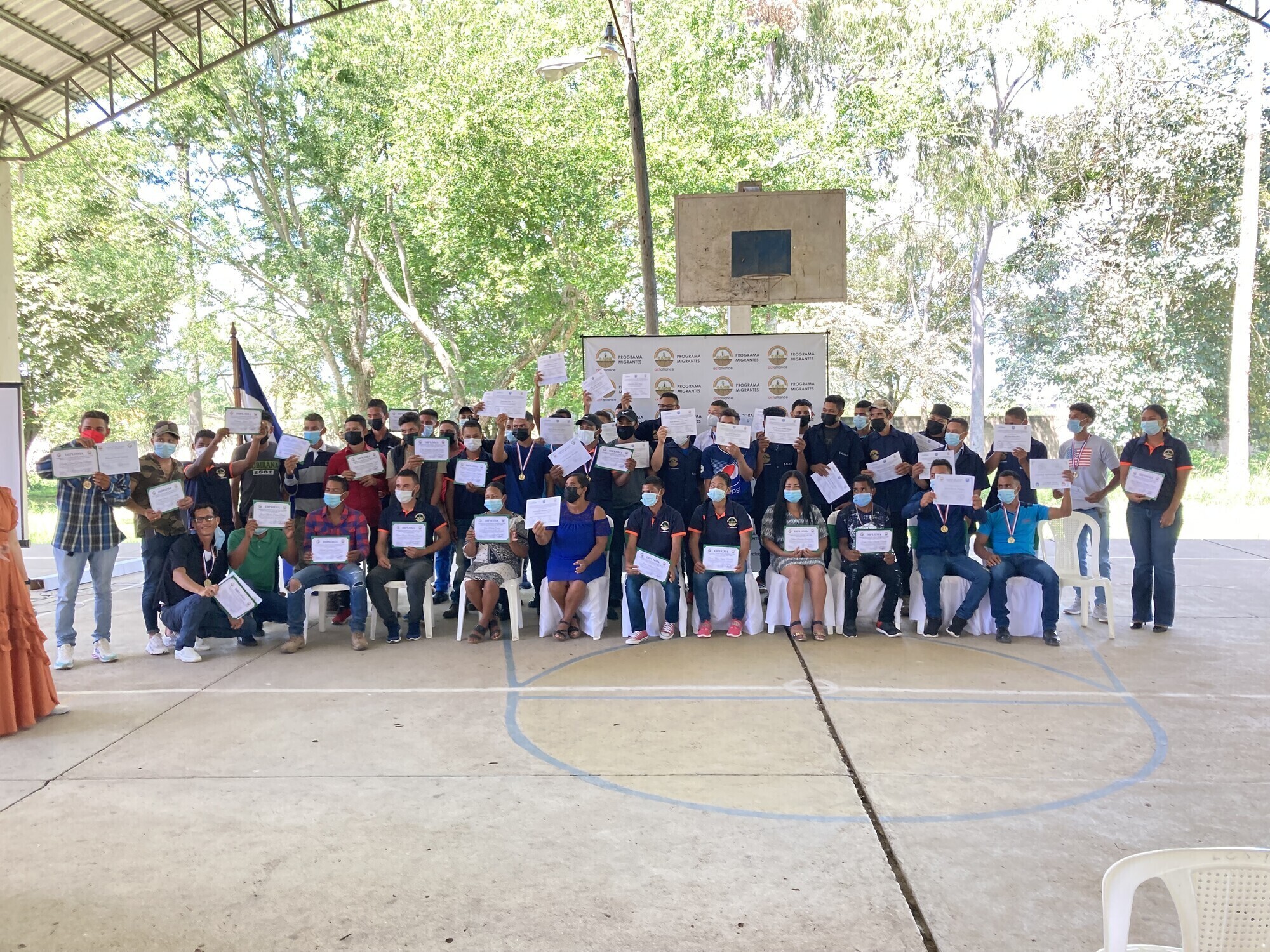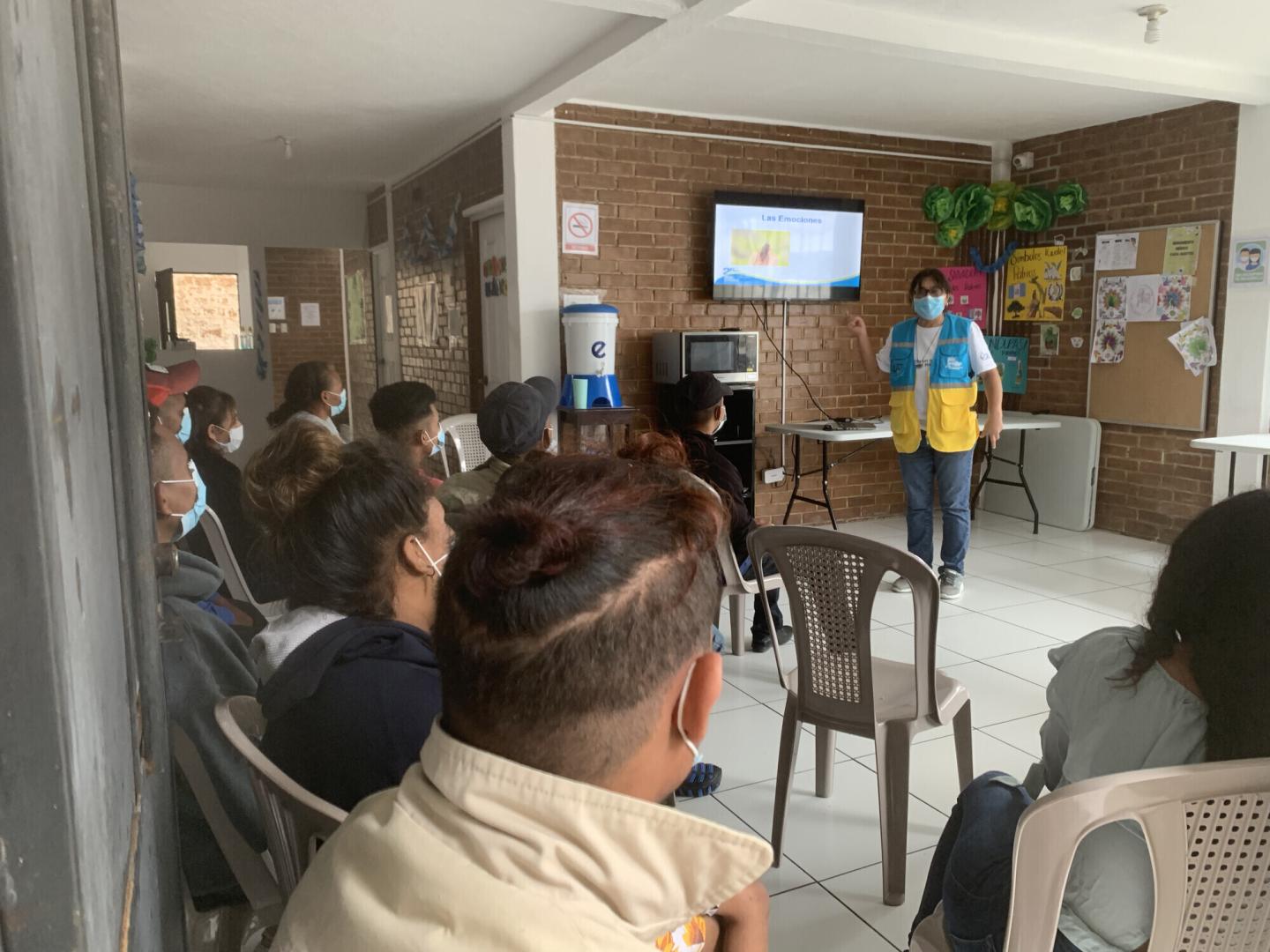Caring for people on the move
In Honduras and Guatemala, MCC partners help returning migrants and others figure out next steps.

The decision to migrate and leave home can be excruciating — but so can the sudden dislocation of being turned back in the middle of a journey.
In Honduras and Guatemala, MCC partners are reaching out to people at various stages of migrating — caring for their needs and helping them to determine what they might do next.
Take Edwin Milan Mejía Cruz, who left Honduras and his rural home in the Department of Yoro because he saw no opportunity for himself.
“I’ve taken the migratory route three times now, but most recently I was turned back in Mexico and returned to Honduras in August,” says Cruz.
Now, though, new plans are taking root for him.
“I have been given an opportunity to succeed, and I hope that it will bring stability for me and my family.”
Edwin Milan Mejía Cruz
Last fall, Cruz was one of more than two dozen returned migrants who participated in an agricultural development program supported by MCC and the Honduran Comisión de Acción Social Menonita (CASM; Mennonite Social Action Commission).
Through sessions held at a local agricultural institute, he and other returned migrants gained training and knowledge in agriculture. They received tools and fertilizer that they can use to cultivate crops now, along with training to eventually incorporate agroecological techniques that will reduce their use of chemicals.
Project leaders make home visits and work with returning migrants on plans for everything from planting and harvesting to installing irrigation systems and improving coffee farms, helping people find new ways to face the challenge of building a brighter future without leaving home.
This is only one of the many ways that MCC partners, throughout Central America and Mexico, are making a difference for people on the move.
In the bustle of Guatemala City, for instance, MCC partner Casa del Migrante (Migrant House) serves as a place of refuge, shelter and legal assistance for migrants from all backgrounds.

Social workers and a psychologist, as well as attorneys and other staff, help migrants connect to medical, legal and employment resources. Meals and clothing are provided to all, and shelter rooms provide a temporary living space, often for those seeking asylum in Guatemala or waiting to return to their home countries.
Especially for migrants buffeted by harsh turns in their migration journeys, Casa del Migrante provides a safe space of respite.
Take Oscar, a mechanic who fled from Honduras and whose real name isn’t used for security reasons. Facing extortion from local gangs, his shop was burned down, and he was shot and injured as he made his way to the police to file a report. That was in February 2021. A month later, he left Honduras to seek safety in Mexico.
But a migration journey has its own dangers.
After being detained in Mexico, Oscar was held for nearly three weeks and finally released. Then, while staying at a shelter as he sought asylum, he was robbed.
Another Honduran responded to the robbery with violence, beating the man who had robbed Oscar. And that wasn’t the worst. Oscar then realized that the Honduran was involved in gangs like those that had threatened him back home. Frightened, he fled.
Eventually caught by immigration authorities again, he was deported across the border to Guatemala. From there, he was homeless for about a month before coming to Casa del Migrante in Guatemala City.
“Here I am recovering, because I arrived beaten up, I was weak, my head hurt,” he recalls. He struggles with the terror of what he experienced in Honduras. He fears being sent back and being found by gang members.
Yet, he expresses gratitude for the quality of care at the shelter and the support he has received. He is requesting asylum, hoping to remain in Guatemala and rebuild his life there. Resources and staff from Casa del Migrante will help guide him through the process.
Like Oscar in Guatemala, Cruz, back home in Honduras, is looking forward to a new start.
In late October, at a graduation ceremony for the agricultural development program, he and others gathered in an outdoor auditorium, cheering for each other as diplomas were passed out. He talked of how useful the trainings had been and how he plans to apply these learnings when he plants corn.
“I hope to be able to have a good harvest this season,” Cruz says. But he’s also intending that the results of the training and the direction he’s starting on now will last far beyond a single harvest or year.
“I have been given an opportunity to succeed, and I hope that it will bring stability for me and my family,” he says.
In Guatemala, Lynette Madrigal-Granados of Fresno, California, serves with Casa del Migrante through MCC’s Serving and Learning Together (SALT) program. Nathan Spiecker of Tirana, Albania, is program evaluation and monitoring coordinator for MCC’s work in Honduras and Nicaragua.
Top photo: This graduation ceremony in Yoro, Honduras, recognized graduates of an agricultural development program, including more than two dozen returned migrants whose studies were supported by MCC and the Honduran Comisión de Acción Social Menonita (CASM). Photo courtesy of CASM

